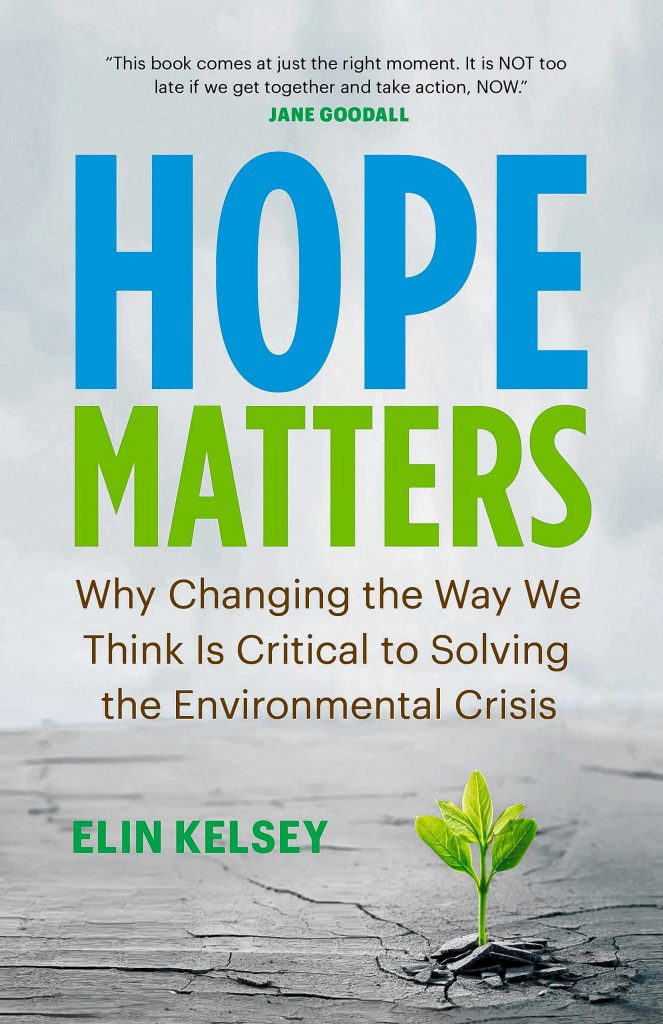By Elin Kelsey
(229 pages, nonfiction, 2020)
This is an interesting book, with a bit of a different take on environmentalism. Elin Kelsey’s purpose is not to make the case that the natural world is in a state of crisis; she takes this as a given, citing evidence from scientists, governments, and NGOs relating to issues such as climate change, mass extinction, and air and water pollution. Instead, the aim of this book is to create a framework that will help humans to avoid burnout while dealing with environmental disasters. Call it the psychology of environmentalism: how do we live on a warming, struggling planet without breaking down under the psychological weight of impending catastrophe? Kelsey’s answer is to cultivate hope.
For about half of this book, Kelsey focuses on why we SHOULD include hope in our understanding of environmental disaster. Simply put: maintaining hope keeps us motivated to work for positive changes. Kelsey defines hope not as an oblivious optimism or naive cheerfulness, but as an active state: hopeful people not only care about the state of our planet, but are motivated to do something about it. In contrast, the experience of hopelessness creates a feedback loop of despair and inaction. Becoming overwhelmed by negative news can cause us to shut down (a common psychological defense mechanism); shutting down makes us less likely to take helpful action; this lack of action means the news gets even worse … and so on. Kelsey provides some excellent advice for helping to combat hopelessness and stay motivated to work, individually and cooperatively, to save our planet. Some of her lessons include actively seeking out positive and empowering stories (something severely lacking in our 24-hour, if-it-bleeds-it-leads news cycle) and using technology to help people see the impacts of their individual actions in real-time.
To the point about seeking out positive planetary stories: the other half of this book is about why we CAN incorporate hope into our understanding of the state of the environment today. While the overall picture can be bleak, our world is full of small victories that very much deserve recognition and celebration. Populations of whales, bald eagles, and other previously endangered species have rebounded significantly due to concerted human-led conservation efforts. Epigenetics allows some plants and animals to change their gene expression in ways that help their offspring to survive in a warmer climate. Informed citizens all over the world use their votes and their dollars to support initiatives that reduce pollution, increase urban greenspace, and create greener food supply chains.
In her research, Elin Kelsey consulted with experts in many fields, from oceanographers to grief counselors. Her end result is an encouraging, inspiring, and easy-to-read book. If you’re still unconvinced that the natural world requires human intervention to remain habitable for the long-term future, this is not the story for you. If, however, you care deeply about environmentalism but need some help overcoming a state of fear and anxiety that are keeping you from taking action, then this might just be the perfect fit.
Visit Concord Public Library online at concordpubliclibrary.net.
Faithe Miller Lakowicz









